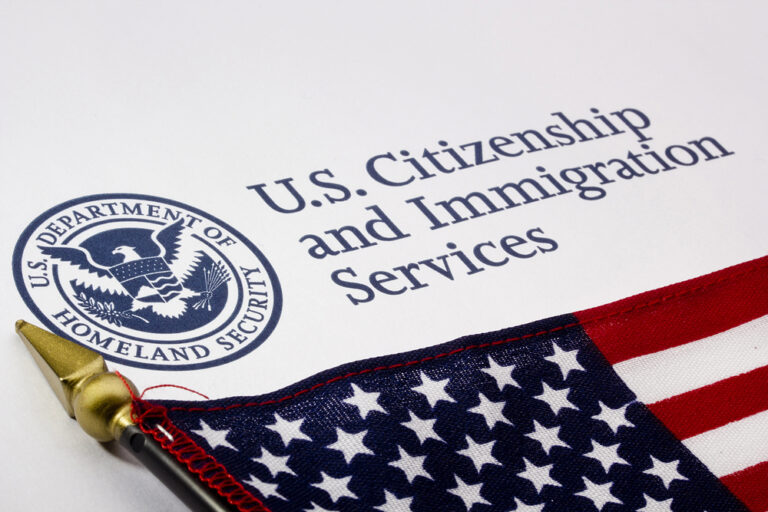The United States offers a pathway to permanent residency through family sponsorship, commonly known as a green card. This avenue allows U.S. citizens and lawful permanent residents green card holders to bring certain family members to live and work permanently in the United States. Let’s delve into obtaining a green card through family sponsorship and the critical steps involved.
Understanding Family-Based Immigration
Family-based immigration is a cornerstone of U.S. immigration policy, allowing close relatives of U.S. citizens and lawful permanent residents to reunite with their families in the United States. The petitioner must be a U.S. citizen or a lawful permanent resident to be eligible for family sponsorship. Different categories of family members are prioritized based on their relationship to the petitioner.
Eligibility Criteria
The eligibility criteria for sponsoring a family member for a green card vary depending on the petitioner’s immigration status and the relationship with the intending immigrant. Generally, immediate relatives of U.S. citizens, such as spouses, parents, and unmarried children under 21, are given the highest priority.
Different Categories of Family Members
Family-based immigration is divided into several preference categories, including:
- First Preference (F1): Unmarried sons and daughters of U.S. citizens.
- Second Preference (F2): Spouses, minor children, and unmarried sons and daughters (over 21) of lawful permanent residents.
- Third Preference (F3): Married sons and daughters of U.S. citizens.
- Fourth Preference (F4): Siblings of adult U.S. citizens.
Sponsorship Process
The sponsorship process involves several steps, including the sponsor’s role and responsibilities.
- Sponsor’s Role and Responsibilities
As a sponsor, you must meet specific criteria, including being a U.S. citizen or lawful permanent resident and demonstrating the ability to support your family member financially. You are responsible for filing the necessary forms, providing supporting documentation, and ensuring that your family member meets all eligibility requirements.
- Documents Required
To sponsor a family member for a green card, you must submit various documents, including proof of your relationship with the intending immigrant, financial documents to demonstrate your ability to support them, and completed immigration forms.
Filing the Petition
Once you have gathered all the necessary documents, you must petition U.S. Citizenship and Immigration Services (USCIS). The two primary forms used in family-based immigration are Form I-130, Petition for Alien Relative, and Form I-485, Application to Register Permanent Residence or Adjust Status.
Form I-130
Form I-130 is used to establish the relationship between the sponsor and the intending immigrant. You must provide evidence of your relationship, such as a marriage certificate or birth certificate, along with supporting documentation.
Form I-485
Form I-485 is filed by the intending immigrant to adjust their status to that of a lawful permanent resident. Along with the form, they must submit biometric information and attend a scheduled interview with USCIS.
Processing Time and Waiting Period
The processing time for family-based immigration petitions can vary depending on various factors, including the petitioner’s immigration status, family sponsorship category, and the USCIS office handling the case. It’s essential to be patient during this period and stay informed about the status of your application.
Interview and Approval
Once the petition is approved and the priority date becomes current, the intending immigrant will be scheduled for an interview with USCIS. During the interview, they will be asked questions about their relationship with the sponsor and their eligibility for a green card. If the interview goes well, the green card application may be approved.
Conditional Permanent Residence
In some cases, if the marriage between the sponsor and the intending immigrant is less than two years old at the time of approval, the immigrant will receive conditional permanent residence. They must jointly file Form I-751, Petition to Remove Conditions on Residence, within the 90 days before the conditional green card expires.
Removing Conditions
To remove the conditions on their permanent residence, the couple must demonstrate that they entered the marriage in good faith and not solely for immigration purposes. They must provide evidence of their ongoing marital relationships, such as joint bank accounts, shared assets, and photos.
Benefits of Green Card Through Family
The benefits of obtaining a green card through family sponsorship extend beyond legal residency. Let’s explore how this process can positively impact immigrants and their families.
- Work Authorization:
One of the most significant advantages of securing a green card through family sponsorship is the authorization to work legally in the United States. With a green card, immigrants can pursue employment opportunities without needing an additional work permit. This opens up a world of possibilities, allowing individuals to build careers, contribute to their communities, and provide for their families with stability and security.
- Access to Social Security Benefits:
Green card holders are entitled to various social security benefits, offering financial protection and peace of mind for themselves and their families. These benefits include retirement, disability insurance, and survivor benefits, which can provide crucial support during times of need. By obtaining a green card through family sponsorship, immigrants gain access to a safety net that ensures their well-being and financial stability in the long term.
- Healthcare Coverage:
Besides social security benefits, green card holders may also be eligible for healthcare coverage under programs such as Medicare and Medicaid. Access to affordable healthcare is essential for maintaining good health and quality of life, especially for families with children or elderly relatives. By securing a green card through family sponsorship, immigrants can access vital healthcare services, contributing to their overall well-being and longevity.
- Educational Opportunities:
Green card holders can access various educational opportunities in the United States, including public schools, colleges, and universities. By obtaining a green card through family sponsorship, immigrants can pursue their academic aspirations and invest in their future through higher education. This opens doors to new career paths, professional development, and personal growth, empowering individuals to achieve their full potential and contribute positively to society.
Challenges and Common Issues
While family-based immigration provides a valuable pathway to permanent residency, it has challenges and joint issues.
A. Delays in Processing
Navigating the immigration process can often be fraught with delays due to the sheer volume of applications and the limited resources available for processing. With thousands of families seeking reunification and permanent residency in the United States each year, immigration agencies such as USCIS may experience significant backlogs in reviewing and adjudicating family-based immigration petitions. These delays can be particularly frustrating and disheartening for applicants and their families who eagerly await a decision on their green card application. Lengthy processing times can lead to uncertainty about the future and may necessitate extended separation from loved ones. Additionally, delays in processing can disrupt life plans, such as employment opportunities, educational pursuits, and housing arrangements, adding to the stress and anxiety experienced by applicants. While efforts are being made to streamline the immigration process and reduce processing times, applicants must remain patient and informed throughout the waiting period.
B. Ineligibility Issues
Despite meeting many of the eligibility criteria for family-based immigration, some applicants may encounter challenges related to ineligibility, which can significantly impact their green card application. Ineligibility issues may arise due to various factors, including criminal convictions, health issues, or fraud. For example, individuals with certain criminal convictions may be deemed inadmissible to the United States under immigration law, barring them from obtaining a green card through family sponsorship. Similarly, individuals with severe health conditions threatening public health or safety may be deemed ineligible for permanent residency. Additionally, engaging in fraudulent activities, such as providing false information or documents during the immigration process, can lead to denying a green card application and potential legal consequences. Facing ineligibility issues can be distressing and overwhelming for applicants and their families, requiring careful navigation of complex legal procedures and potentially seeking waivers or other forms of relief. Applicants must consult with an experienced immigration attorney to assess their eligibility and effectively address potential ineligibility issues.
Conclusion
Obtaining a green card through family sponsorship is a significant milestone for many immigrants seeking to build a better future for themselves and their families in the United States. While the process may seem daunting, with patience, preparation, and perseverance, it is possible to navigate the complexities of family-based immigration successfully.
Are you ready to take the next step toward obtaining your green card through family sponsorship? At Better Call Saad, we understand the importance of this significant milestone in your journey toward building a better future for yourself and your loved ones in the United States. Our experienced immigration attorneys are here to guide you through the complexities of family-based immigration with patience, preparation, and perseverance. Let us provide you with the expert legal assistance you need to navigate this process successfully. Contact Better Call Saad today to schedule a consultation and embark on your path to permanent residency.
FAQs (Frequently Asked Questions)
- Can I sponsor any family member for a green card?
- No, only certain family members are eligible for sponsorship based on their relationship with the petitioner and immigration status.
- How long does it take to get a green card through family sponsorship?
- The processing time varies depending on factors such as the petitioner’s immigration status, the category of sponsorship, and the USCIS office handling the case.
- What happens if my green card application is denied?
- If your application is denied, you can appeal the decision or reapply if you believe there was a misunderstanding or error.
- Do I need an immigration attorney to sponsor a family member for a green card?
- While it’s not required to have




